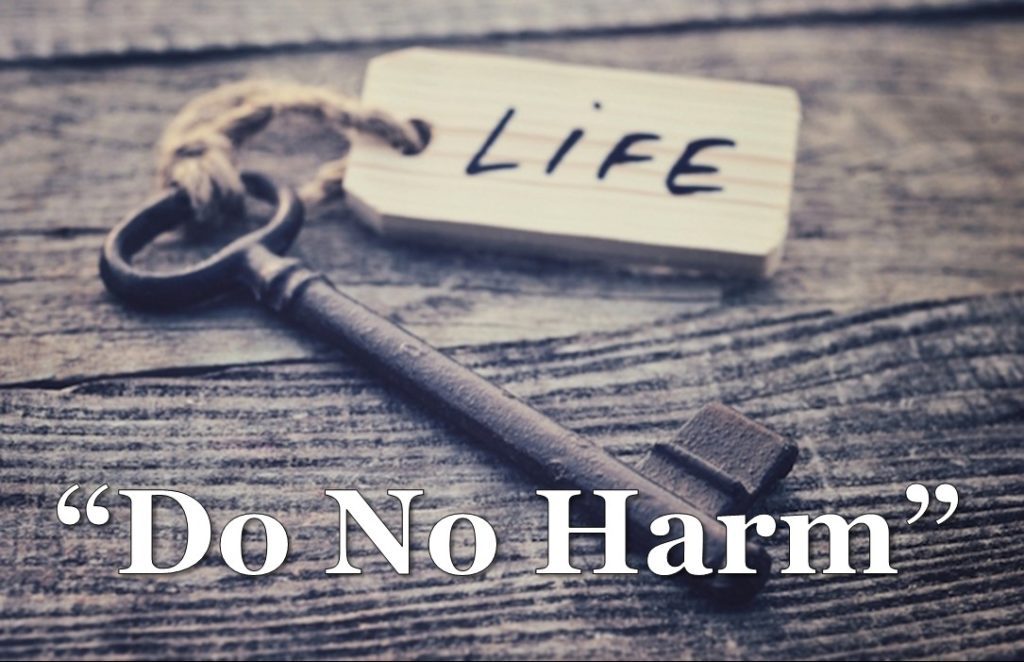Do No Harm
Hippocrates was a physician who lived around 400 BC during the classical Greek era. He is considered by many to be the father of modern medicine. As a summation of his philosophy, he proffered what has become the Hippocratic Oath, a statement/promise governing the actions and responsibilities of doctors. A modified form of this oath is still a common rite of passage for many physicians today.
One of the primary focuses of the oath is the concept of do no harm. This is the simplest of concepts. If we are going to help, we must harm no one in the process. We are better off leaving them alone than attempting to help them only to make things worse. That is why medical practices are so structured, researched and tested. A medication is of no value if its side effects are going to kill the patient. This is where we need to be very careful.
It is important to note that this concept is not just limited to strictly medical disciplines. Do no harm is also a fundamental guideline for mental health and chemical dependency counselors as well as all helping professions. This is where we need to be very, very careful. When an incompetent or personally motivated practitioner harms the patient, this is classified as the iatrogenic effect. Ultimately, the patient experiences harm they would not have experienced otherwise.
So what the heck does this have to do with us? Because if we have any hope of helping anyone else, we need to keep this concept in mind. We as laypeople have no lesser responsibility in our helpful efforts. How is this accomplished?
1. Know what you are doing.
2. Keep yourself and your agenda out of it.
If we wish to help other people, we need to focus on sharing our experience, strength and hope rather than our intellect. We have no business giving advice in areas where we have little or no knowledge or firsthand experience. For example, I imagine I would not be a very good counselor for a person who lived isolated in a forest their whole life because I have no knowledge or experience related to how such an environment would shape a person’s psyche. I am not saying that I would not be able to help that person, I am simply saying that my efficacy would be fundamentally compromised due to my lack of knowledge and experience.
Even more important than having knowledge and experience, is the ability to keep ourselves separated from the situation. For example, let us say that we have someone in our lives that is drinking. Do we want them to stop drinking because it is destroying their life or because it is destroying ours? We cannot taint our helpful efforts with our personal desires. If we endeavor to help another in hopes of improving our situation, we’re not helping them at all. We are only helping ourselves. That is not help. Under such conditions, we are doing the right thing for the wrong reason. Once we intermix ourselves, we inadvertently doom the effort. We will ultimately hurt them. Hurting an already vulnerable individual leaves them unable to trust anyone to help them in the future. You didn’t just hurt them today; you’ve hurt their ability to receive help in the future. That is why we must be very purposeful about our giving. That is why we are never to give to get. Our compassion must rest solely on those we seek to help.
I have heard it said that the road to hell is paved with good intentions. Despite how noble our intentions may be, they can inadvertently generate a wake of destruction. That is why we must be mindful and heartfelt in the choices we make to help others. Whatever you do, do no harm.
Thank you
Jim
James A. Francetich is a freelance writer and author. The opinions expressed are solely of the author and do not represent any community based recovery programs, private or public entities or any governmental agencies.

